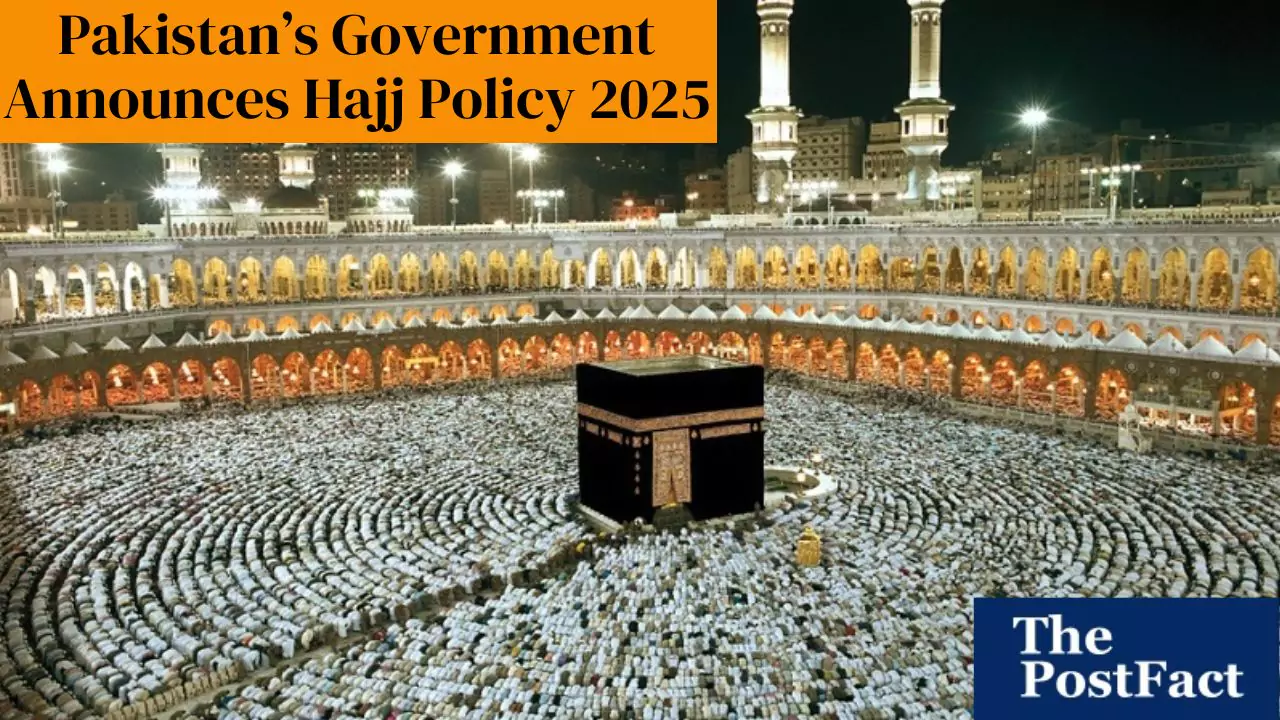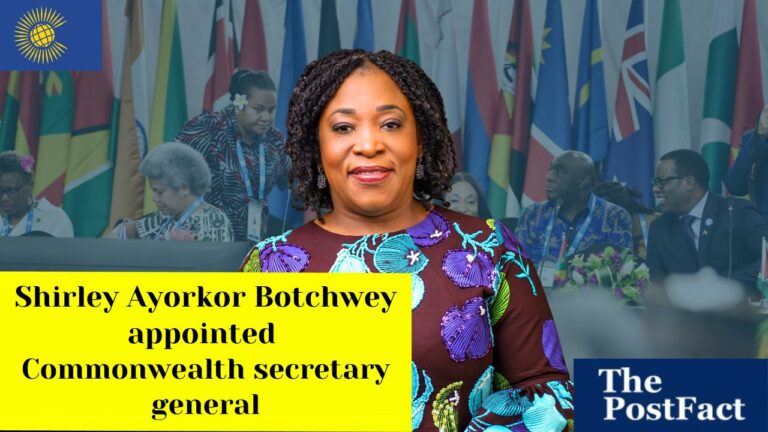Pakistan’s Government Announces Hajj Policy 2025
The Federal Cabinet has approved the Hajj Policy 2025. Minister of Religious Affairs and Interfaith Harmony Chaudhry Salik Hussain unveiled the new policy in Islamabad on Monday.
He said 179,210 Pakistani pilgrims would perform Hajj next year under the government and private schemes.
The ministry will implement computerized balloting and provide a streamlined departure process at Islamabad and Karachi international airports. Priority will be given to individuals performing Hajj for the first time.
Quota allocations
A total of 179,210 Pakistani pilgrims will perform Hajj next year under the government scheme, Minister for Religious Affairs Chaudhry Salik Hussain said on Monday. He added that the quota will be divided evenly between the government and private schemes, with each receiving 50 percent of the allocation. Children under 12 years old will be excluded from the government quota.
In addition, the ministry will set aside 1,000 seats for hardship cases and 300 for workers and low-income employees registered with the Employees Old Age Benefit Institution or the Workers Welfare Fund. Pilgrims will also have access to a new position of Nazim, who will oversee their safety and welfare. The cabinet was apprised that compensation for those who die or are injured during the trip has been increased from Rs1 million to Rs2 million.
The cabinet was informed that a new Hajj management application has been developed for the convenience of pilgrims, and arrangements have been made for them to be trained on its use. The first installment of Hajj dues will need to be submitted along with the application, and the remaining payments must be deposited by February 10 next year.
New oversight measures
A number of new measures have been introduced to help ensure that Hajj is as smooth and pleasant for pilgrims as possible. The compensation paid to families of deceased or injured pilgrims has been increased, and a specialized Hajj management app has been developed to support pilgrims. In addition, priority in the balloting process will be given to first-time pilgrims.
Chaudhry Salik Hussain also announced that a new facility will be available for people who cannot deposit the full amount of their Hajj dues at one time. Applicants will be allowed to submit the first installment of their dues, which is Rs200,000, with their application. They will then have to deposit an additional Rs400,000 within ten days of the lottery draw, and then the remaining amount will be payable between February 1 and 10.
The ministry has also taken measures to crack down on pilgrims who engage in begging during their stay in Saudi Arabia. Last year, 1.8 million people made the Hajj, but the trip is often beyond the means of poor Muslims from developing countries.
Computerized balloting
Following recommendations by the Ministry of Religious Affairs, the federal cabinet has approved the Hajj policy for 2025. It will use computerized balloting for government quotas while restricting children under the age of 12 from traveling to Hajj next year. It will also reserve 1,000 seats for hardship cases and 300 seats for low-income workers registered under the Workers Welfare Fund and Employees Old Age Benefit Institute.
Chaudhry Salik Hussain told the meeting that applicants will be required to deposit a first instalment of Hajj dues, amounting to Rs200,000, with an additional payment of Rs400,000 required within 10 days of balloting. Refunds will not be issued after February 10, except in case of death, he added.
The minister also outlined other new oversight measures, including a new position of ‘Nazim’ for every 100 pilgrims who will be selected from the welfare staff to manage facilities. Additionally, Hajj Group Organizers will sign Service Provider Agreements with the Ministry of Religious Affairs and their performance will be strictly monitored. The minister also said that compensation for deceased and injured pilgrims has been increased from one to two million rupees.
Road to Makkah
Minister Chaudhry Salik Hussain announced the new policy for next year’s pilgrimage. He said the cost of the Government Hajj Scheme would be between Rs1,075,000 and Rs1,175,000, including the price of a sacrificial lamb. Pilgrims choosing double-bed or triple-bed accommodation in Makkah would have to deposit an additional Rs220,000 and Rs75,000 respectively. He said organisers of private Hajj groups would have to sign service provider agreements and that all arrangements would be strictly monitored. He also added that compensation for the heirs of deceased pilgrims had been increased to Rs2 million and that a special Hajj management app would be introduced, with arrangements made for training.
The ministry is also taking steps to prevent begging, with police cracking down on Umrah pilgrims engaging in such activities. The Road to Makkah project, which allows pilgrims to skip immigration procedures at airports, will continue for the next season, with plans to expand it to Lahore Airport. The policy also outlines a computerized balloting system for government quotas and restricts children under 12 from traveling. It also reserves 1,000 seats for hardship cases and 300 seats for low-income workers registered with the Workers Welfare Fund or Employees Old Age Benefits Institution.
Health guidelines
If you are preparing for your Hajj pilgrimage, there are a few things you should know. One of the most important is that you must take care of your health, particularly if you are traveling to countries where disease outbreaks occur frequently. This will prevent you from getting sick while on your journey and ensure you have a safe and rewarding experience.
Steenkamp also points out that the government should consider increasing the national pilgrim quota and decreasing the minimum pilgrim quota for Hajj operators to be accredited. In addition, the federal cabinet should address concerns regarding the low number of pilgrims from South Africa.
Chaudhry Saalik Hussain emphasized that the first installment of the government scheme would be due along with the application, and a second deposit of Rs200,000 must be submitted within ten days of balloting. The remaining amount must be deposited between February 1 and 10, 2025. Hussain clarified that there would be no deduction for refunds before the last date of submission, but a Rs50,000 deduction will apply if an application is withdrawn after balloting. He further explained that foreign exchange collected through the sponsorship scheme will be used solely for Hajj-related expenses in Saudi Arabia.







